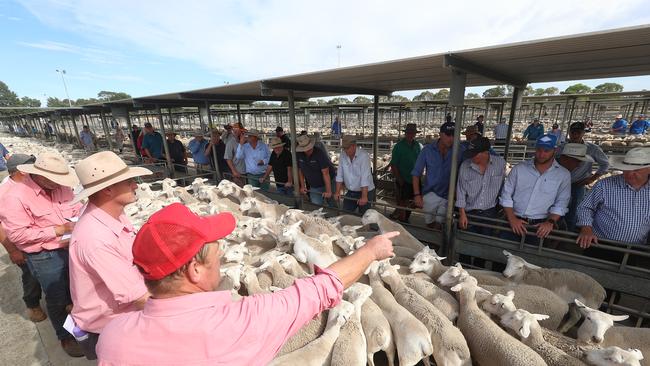Sheep and lamb prices to rise after mutton crashes down
Despite mutton crashing back down, producers, analysts and agents are expecting sheep and lamb prices to move higher. It is just a matter of when.

Lamb prices are stable, while mutton has come crashing down after its meteoric rise of last week.
But there are signs sheep and lamb supply is tightening, which will lead to stronger prices in the medium-term.
The national mutton indicator is trading at 447c/kg carcass weight, down 99c/kg on a week ago but 170c/kg higher than the same time last year, while the national trade lamb indicator is at 809c/kg, stable on last week and 163c/kg higher than last year.
Episode3 director and analyst Matt Dalgleish said there has been a sharp reduction in sheep and lamb saleyard throughput in NSW and Victoria during the past three weeks, while processing volumes have been climbing.
Mr Dalgleish said weekly sheep yardings across both states have dropped 25 per cent and lamb yardings 21 per cent in the past three weeks.
“Sheep slaughter has increased by 12 per cent over the same three-week period, from 128,960 head per week to 144,610. Lamb slaughter also lifted 12 per cent, from 340,796 to 381,082 head per week,” he said.
“This divergence between falling saleyard supply and increasing processor demand has led to heightened competition for available stock, with a consequential lift in pricing across both the sheep and lamb sectors.”
“As supply remains constrained and processors continue to push to fill kill schedules, it’s likely that elevated prices, particularly for mutton, will persist in the near term.”
However, he said this will depend on seasonal conditions, producer confidence, and any shifts in international demand.

Paull and Scollard Nutrien livestock agent Richard Wynne from Corowa, NSW, said lambs were $4-$5 cheaper at Corowa’s prime sale on Monday, but there were a lot of lighter lambs on offer, while mutton was back $20-$30.
“Everyone thinks prices will rise soon, it is just a matter of when,” Mr Wynne said.
“There are a lot of contracts (from processors) out to 850c/kg carcass weight for next month and 880c/kg in June, so it is all heading in the right direction, it is just taking its time.”
Mr Wynne said contracts from processors weren’t out early enough, so many farmers haven’t been prepared to feed lambs, which could lead to a shortage later in the season.
Murray Keller from Wedderburn Junction sold 54 Merino-cross lambs for $198 at the Bendigo prime sale on Monday.
“We were expecting about $200, so it wasn’t far off,” Mr Keller said.
“Prices aren’t too bad at the moment, but week to week you don’t know what prices will do.”
“I was a bit concerned when Trump did what he did (with tariffs) but I think prices are about where they should be.”





